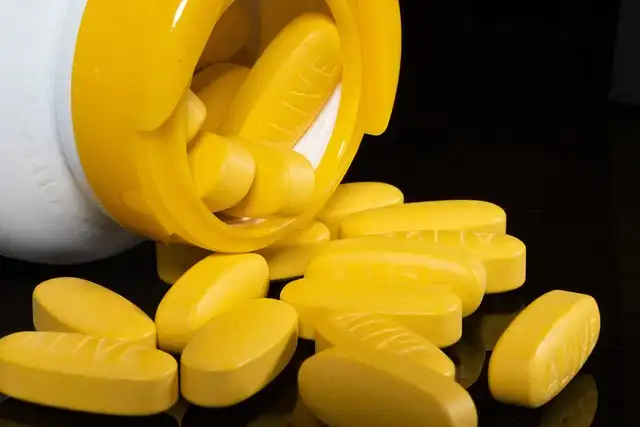HIV/AIDS Funding Cuts: Impact on Global Health & Research

Cuts to PEPFAR & UNAIDS funding threaten HIV/AIDS treatment & research globally, potentially increasing infections, deaths, and opportunistic infections. US role is key.
Sutton examined. Sutton credited the massive decline in HIV/AIDS fatalities to the success of PEPFAR and UNAIDS programs.
The Role of CD4 Cells in Immune Defense
“We’re going to be seeing millions even more people with really high, harmful viral lots and absolutely no CD4 counts,” said Sutton. CD4 cells are a kind of leukocyte especially called a T assistant cell. They are vital for the body immune system’s ability to combat off infections.
PEPFAR’s Impact on HIV/AIDS Treatment and Prevention
PEPFAR, which works in 50 nations, mostly focuses on pre-exposure prophylaxis, providing therapy to individuals that are HIV seropositive– those with HIV antibodies in their blood stream, indicating they have actually been revealed to HIV. It also gives helpful treatment for people living with HIV/AIDS, including palliative treatment, nutritional assistance, and therapy for opportunistic infections.
On Feb. 27, the Trump Management introduced it was putting on hold funding to the Joint United Nations Programme on HIV/AIDS. In a statement, UNAIDS Executive Supervisor Winnie Byanyima stated that nations in the creating world are clambering to keep their programs going when funds are ended in June.
Sutton likewise functions as the principal of Transmittable Conditions Research at the Professional’s Management in Connecticut– VACT. The West Place VAMC looks after roughly 300 patients contaminated with HIV. “Their viral lots are undetectable, their CD4 count is alright, and they can live for years,” stated Sutton, making the factor that HIV/AIDS need not be a death penalty when treatment is readily available and carried out.
Funding Cuts and the Threat to Progress
“Therefore stopping all that funding, the variety of fatalities from HIV will just go up once again,” he specified. Numbers of infections and deaths from HIV and related opportunistic infections will certainly likewise rise in the US, as homeowners travel to nations with fewer resources for therapy and avoidance.
“Without HIV therapy, people get opportunistic infections.” Without HIV treatment, individuals get OIs– opportunistic infections– and they obtain particular cancers cells and they pass away,” said Sutton in an interview with American Area Media. “They get cryptococcal meningitis. They get all sorts of herpes virus infections. In The golden state, they obtain coccidioidomycosis (Valley fever), which is unpleasant.”
The Impact of Funding Reduction on Research
The scientist likewise kept in mind that the National Institutes of Wellness has reduced funding for 230 grants related to HIV/AIDS research, particularly in the area of vaccinations. His laboratory has gotten a 2-year grant to research HIV-Rev, a healthy protein that is vital to managing HIV expression. He will soon be called for to submit a progress report. In regular times, 99.9% of progress reports are accepted and financing proceeds. Nevertheless, Sutton said he has heard via the grapevine that approximately fifty percent of progress reports are being declined this year.
Global Economic Disparities in HIV/AIDS Care
Doubters of the PEPFAR program say countries have to “have their upsurges.” In South Africa, for example, 83% of funding for HIV/AIDS programs and solutions comes from the federal government’s very own coffers. Yet Sutton claimed the business economics of the majority of countries in the developing world would avoid them from creating and keeping HIV/AIDS prevention and treatment programs. He gave the example of Uganda, in which virtually 6% of the population– 1.4 million individuals– cope with help.
Independently, the Trump Administration shuttered the majority of programs under the United States Agency for International Growth. The President’s Emergency situation Plan for AIDS Alleviation– PEPFAR– founded in 2003 by President George W. Bush, is carried out through USAID. The extension of PEPFAR is uncertain.
“I was simply Zooming with individuals in Uganda this week, and they claimed the cuts in funding are mosting likely to hit them really hard, because a lot of their people get their anti-retroviral medicines from the PEPFAR program. And boom, it’s gone,” he claimed.
“Without HIV therapy, people obtain opportunistic infections. They get specific cancers cells and they pass away.”– Dr. Richard Sutton, Professor of Medicine, Transmittable Conditions, and of Microbial Pathogenesis at the Yale Institution of Medication.
“Without HIV treatment, people obtain OIs– opportunistic infections– and they get specific cancers cells and they pass away,” claimed Sutton in a meeting with American Area Media. They get all sorts of herpes virus infections. In California, they obtain coccidioidomycosis (Valley fever), which is nasty.”
Urgent Call for Continued Support
Sutton noted he has actually held numerous postdoctoral researchers from Uganda in his lab, that understand the science. “Every little thing we do is fairly straightforward. And our protocols are made a note of. So could they do this in Uganda or somewhere else in sub-Saharan Africa? Yes, they could, if they had the money. But they don’t. Therefore it is up to the US and the Western globe to complete here.”
The world will certainly likewise experience a spike in HIV/AIDS-related opportunistic infections that take over the body of a person with a greatly-weakened body immune system, stated Dr. Richard Sutton, professor of Medicine, Contagious Diseases, and of Microbial Pathogenesis at the Yale College of Medication.
1 Funding Cuts2 Global Health
3 HIV/AIDS
4 Opportunistic Infections
5 PEPFAR
6 UNAIDS
« Pope Francis: Legacy, Reforms, and Impact on the Catholic ChurchAbrego Garcia Deportation: Trump Admin Faces Outcry »
